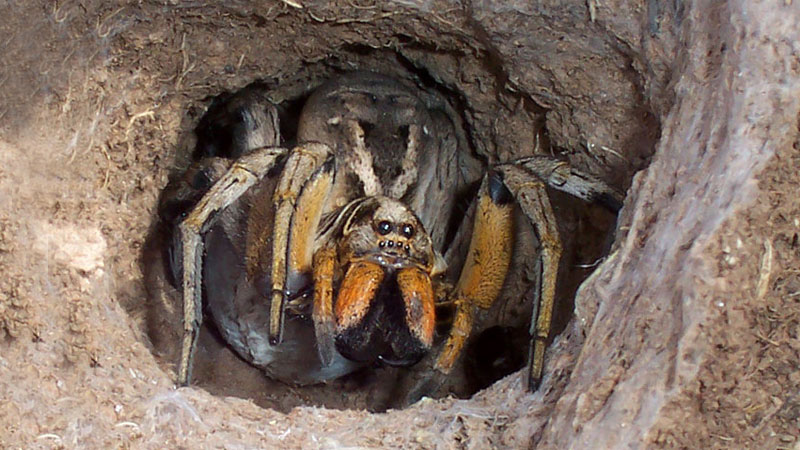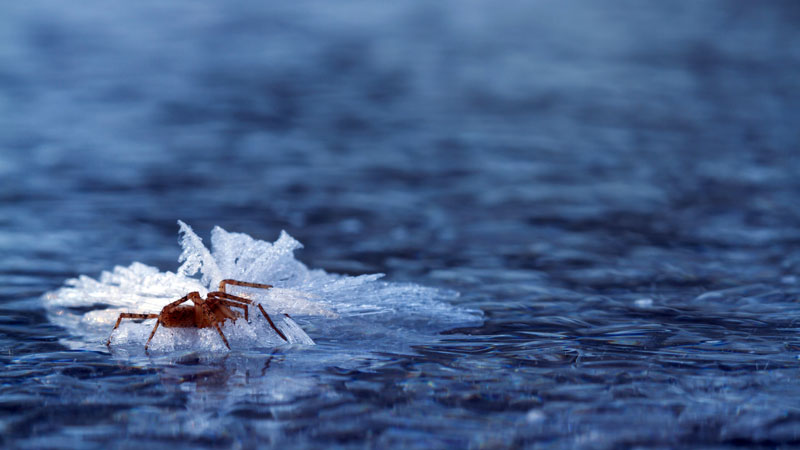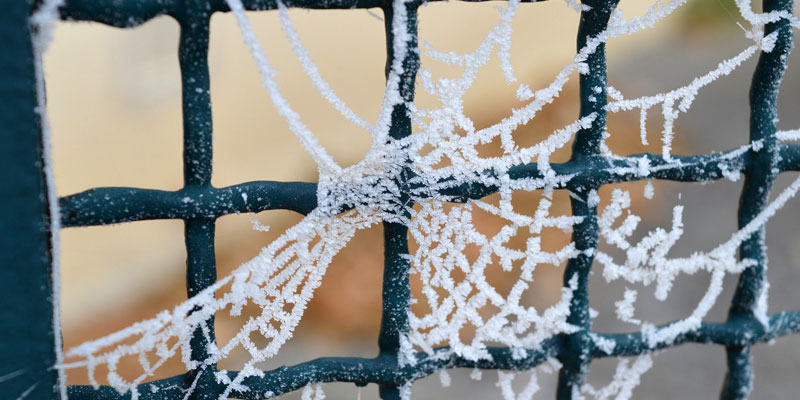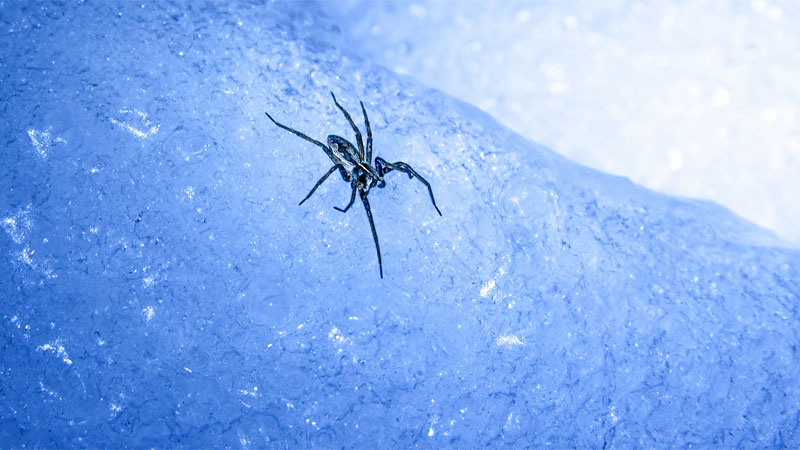One of the most controversial household critters, spiders are both beneficial and (depending on the species) dangerous. But where do spiders go in the winter, when their primary food source has either gone into hibernation or died out?
The answer to this depends upon the species of spider, and sometimes also the circumstances.
See Also: What Temperature Kills Mosquitoes?
Do Spiders Die in Winter?
One of the saddest moments for kids in the older generations was Charlotte’s farewell to Wilbur. As with many spiders, she died early in the cold winter months. In her stead was a clutch of eggs that wouldn’t release the baby spiders until the next spring.
For many kids, this tragic scene wasn’t just traumatic. It also served as the only discussion of what happens to spiders in the winter months they would be privy to.
One common household species which follows the life cycle Charlotte demonstrated is the jumping spider. Like Charlotte, the jumping spider lays an egg sac in the fall, succumbing to the colder temperatures soon after. The eggs actually hatch during the winter, but the young remain safely sealed inside the insulating sac until spring.
Related: How to Kill Spider Eggs Before They Hatch
Wolf spiders, another common household guest, also use this wintering strategy during procreation. As with jumping spiders, they don’t fare as well in the outdoors once frost sets in. However, you may find both of these species running around your home while the chestnuts are roasting if they had already taken up residence.
See Also: 9 Fascinating Facts about Wolf Spiders
Do Spiders Hibernate in Winter?

A number of spider species are unable to withstand the combination of cold and food reduction. These species instead seek out rock piles or leaves to hide under and enjoy a form of hibernation. Unlike a lot of mammals, spider hibernation is based upon temperature and not season.
Hibernating arachnids produce glycerol when the temperature drops below a certain point. This serves as a natural antifreeze substance, allowing the spider to stay warmer internally. However, they can still die in low enough temperatures.
This ability comes with an interesting side effect. A spider might wake up on warmer days and leave its hiding spot for food. As most of their prey will be lethargic or hibernating themselves, the spider can grab a quick meal before going back to sleep as the temperature starts to drop again.
Related: What Does Spider Poop Look Like?
How Do Spiders Survive Winter Without Hibernating?
For a large number of species, winter is just a setback. These octopeds have two major ways of staying active in cold temperatures: warmth hunting and torpor.
Most pet spiders are of species which use one of these winter survival methods. Meanwhile, some outdoor spiders may use glycerol production in addition to torpor or warmth hunting to venture out and maintain their webs.
Many common household spiders, such as the deadly brown recluse and infamous (albeit not as deadly) black widow, are known as warmth-hunting spiders.
These arachnids seek shelter where there’s warmth and possibly food. You may find them in your home or garage and even in your live Christmas tree, trying to avoid attention while squatting in your living space. It’s also a reason why you may see some common spiders in your bedroom – although don’t believe the myth that says we each swallow 8 spiders in our sleep each year.
Torpor, meanwhile, is a state of lethargy which helps spiders and many other animals conserve energy in cold weather. Tarantulas are a perfect example of common spiders which use torpor to survive. By temporarily lowering their body temperature, these critters can head out on a cool day to hunt.
Read Also: Can Cockroaches Survive in Winter?
Spiders as Weathermen
On a final note for those who allow spiders to cohabitate, you can actually take advantage of web-makers to get an accurate seasonal weather forecast. Even house spiders can sense when a rough winter season is coming. In response, a female spider will attempt to prepare a warmer place for themselves and their eggs.
The thicker the cobwebs, the colder it will be in the coming months. As a result, you can examine the density of fresh cobwebs during the fall to gauge whether your heating bills will run higher this year.
Preventing a Spring Spider Infestation
So now that you know the way some spiders die or survive during the colder months, a new question arises. How can you prevent a jump in the spider population once spring arrives? Temperature is the key.
A female spider must keep her eggs warm. This means finding some dark nook that’s protected from harsh weather conditions. She’ll seek a cozy spot under piles of rocks, leaf litter, or in masonry. The latter is why crawl spaces and basements tend to get infested each fall.
Keeping your yard free of debris and sealing any entry points can encourage these cold-blooded creatures to lay their eggs elsewhere. Check your home for insect infestations and call pest control or deal with them yourself in late summer. This will make spiders less inclined to wander indoors before the temperature drops.
While simple, these methods will help ensure fewer egg sacs on your property – which means fewer spiderlings next year.
- How to Get Rid of Hawks - March 8, 2024
- How to Get Rid of Pill Bugs (Rolly Pollies) - March 1, 2024
- How to Get Rid of Groundhogs (Woodchucks) - February 5, 2024




